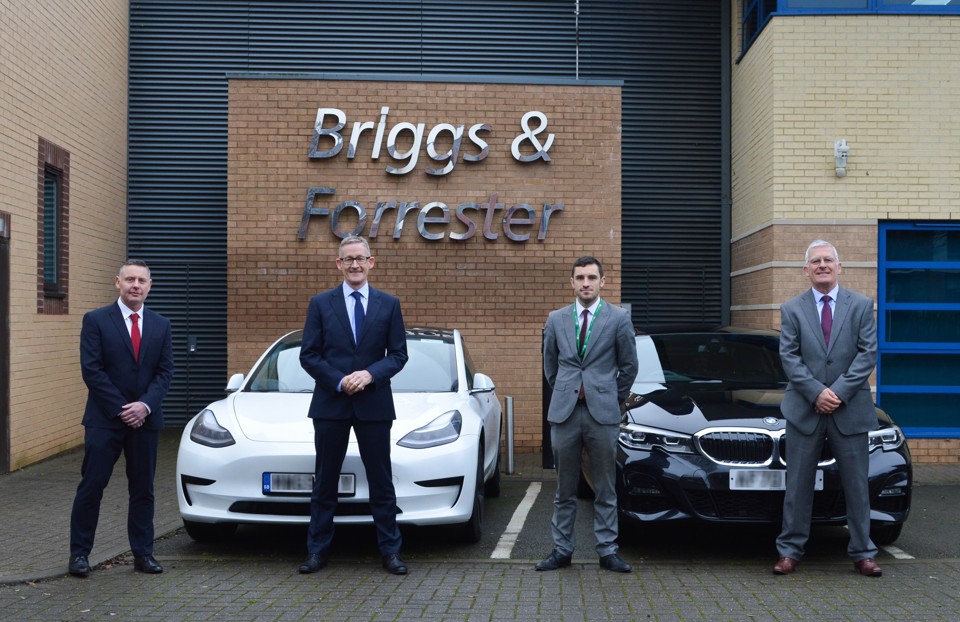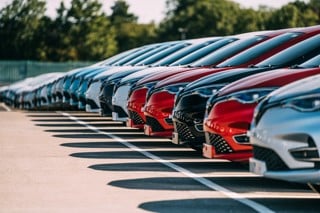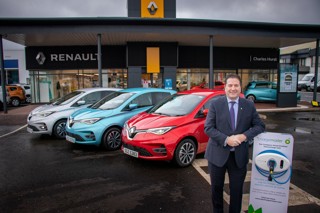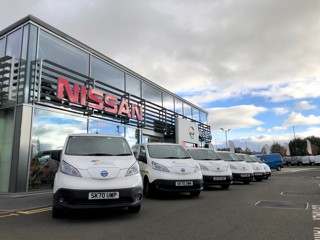Briggs & Forrester is reducing its environmental impact by only offering electric vehicles (EVs) or hybrids to its employees.
The building services firm has chosen Lex Autolease to help it make the switch and Dan Faulkner, the leasing company’s corporate business development manager, believes the Government’s decision to end the sale of new petrol and diesel cars and vans from 2030 will persuade other fleets to follow suit.
“We’ve seen many businesses explore the option of adding EVs to their policies in recent years – a move that will help reduce carbon footprint while also achieving significant cost reductions,” he said.
“The Government’s recent announcement to bring forward the ban on ICE vehicles will no doubt fuel the switch for many.”
Briggs & Forrester expects to make an initial saving of 1,702 tonnes of carbon dioxide (CO2) per annum, which will improve year-on-year as the existing fleet is converted to electric, plug-in hybrid and traditional hybrid vehicles.
Paul Burton, Group CEO, said: “We are proud to have partnered with Lex Autolease to offer our staff a wide range of electric and hybrid vehicles that will help to reduce our environmental impact.
“We have been working to improve our company fleet for some time and are proud that we have been able to launch this year (2020).
“We have installed charging points at our head office with the aim to roll this out to our 10 regional offices across the UK.”
Faulkner warns that 2030 will come around particularly quickly for businesses with large fleets of traditionally fuelled cars and vans.
“Briggs & Forrester were ahead of the game, and we’ve been able to work with them to develop a solution that ensures their drivers have access to green vehicles that suit their needs,” he said.
Recent research, conducted by Fleet News, revealed that almost two-thirds of fleets believe implementing a ban on the sale of new petrol and diesel cars from 2030 is too soon.
The survey, completed by more than 600 fleet decision-makers, showed that fewer than a third (29%) agreed with the implementation date for cars.
One-in-five fleets (21%) would have preferred the ban for cars to be introduced from 2035, with a similar number (22%) suggesting a start date of 2040 – the original date chosen by the Government.























Login to comment
Comments
No comments have been made yet.